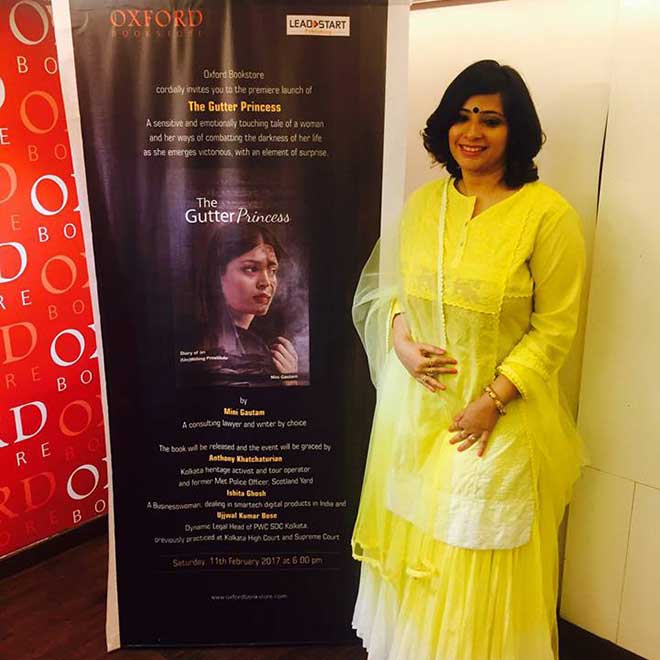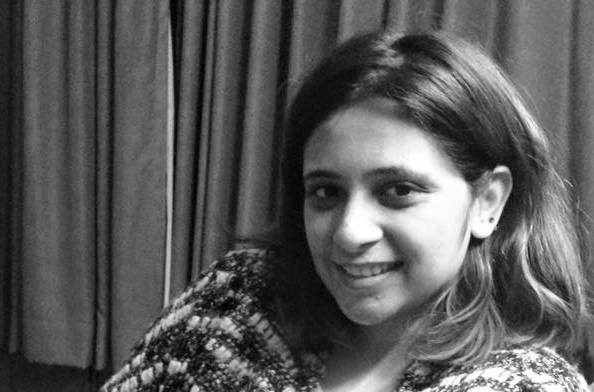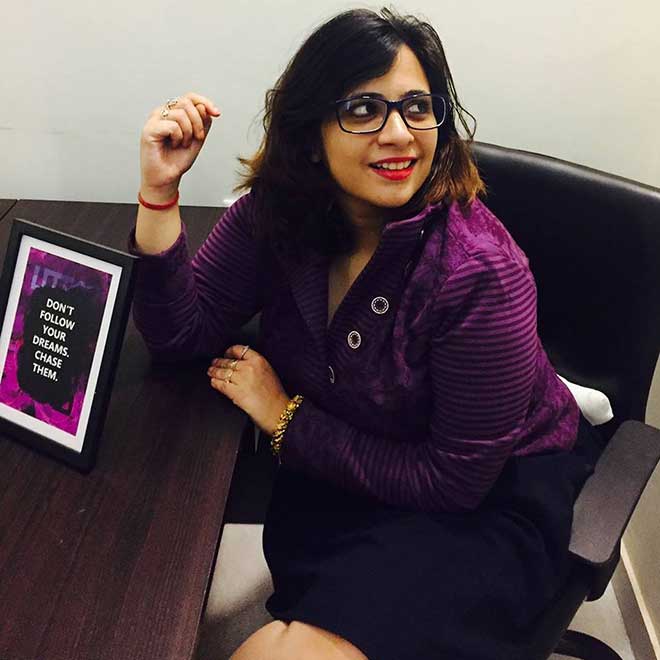Mini Gautam graduated from ILS Law College, Pune University, in 2010. Presently, she is a Senior Manager in the strategy and planning department of one of the leading infrastructure finance companies in India. She plays a key role in legal strategy and transactions crossing a certain level of criticality and threshold.
In this interview we speak to her about:
- Challenges associated with being an in-house counsel
- The recruitment process in her company
- Writing her book and the publication process
You are working in the strategy and planning office of your company. How different is that from a regular legal function?
I am working in the strategy office of Srei Infrastructure Finance Limited, one of the leading infrastructure finance companies in India with operations of affiliated entities extending into the oil, power, construction equipment leasing, and telecom sectors. The quality of work here is superlative. We are expected to not just pick up and read laws, but to structure and provide practical and workable solutions. The motto is to try and furnish the solution; not just identify the problem. That has helped me to look at everything from a commercial and systematic point of view.
I don’t want to delve into the philosophy or art of law anymore as a commercial lawyer. I want to know what is it that affects my organization and to what extent. That’s it. Once I have that base knowledge, everything becomes easier.
What are the essential requirements that a law student must fulfill in order to pursue a career in financial services?
CA, CS, MBA are really helpful for working in corporate law. I don’t have any of these degrees and some of the people who I have had a chance to work with and who have a good grasp of the law and a clear understanding of concepts, do not either. So I will be compelled to say that degrees don’t add the kind of value that practical experience does. In my experience, I have found that the harder and harder you work, the more the number of hours you put in and as a lawyer, that’s pretty much all you need to be successful.
How would you describe the roles and responsibilities associated with being a senior member of your organization?
Thankfully, I have been given a good role in my organization. I would think corporate in-house wise, this is probably the best exposure a person can get. The scope of the work is diverse and spread across multiple sectors; so there is never a boring day or repetition of any kind. The learning curve is really good.
Why did you shift from a mid-sized law firm to a company?
Moving in-house from a mid – sized law firm was one of the best decisions of my life. Working in-house has made me appreciate and soak in one thing, the beauty of business. The kind of challenges involved in running a company, whether they be on a day to day and operational perspective or whether they are from a structuring and transactional viewpoint. While being in a law firm may help you understand the academic and doctrinaire aspects of law, in-house heaps a whole lot of responsibilities on you that are fundamental to the functioning and sustenance of a corporate house.
What are the challenges associated with being an in-house counsel?
The biggest challenge of working in-house is balancing legal and business needs and aspirations. You have to learn to pick your battles wisely; some things you fight tooth and nail for, some things you let go and live to fight on another day.
As in-house counsel, you have to be thorough with the business requirements; every decision you make is crucial and may have spill – over effects over a long duration.
You don’t have that much scope to go wrong or make a mistake. Your business teams rely on your judgment entirely. Once you have taken a call, that’s that.
Would you hire a hard working student or a street smart one?
We are always looking for hard-working students to come on board. The willingness to work hard and yes, to some extent, the ability to work smart is the key differentiator between students who get selected as opposed to those who don’t. We don’t want to know how much you already know as a fresher; because trust me, you know nothing. We just want to know how willing you are to be remolded and recast; everyone starts at zero.
What do you see in candidates when you go for recruitment?
While conducting an interview, the one thing that matters the most is the sincerity of the candidate. It is the single most important and deciding factor and is much more relevant than grades or moot courts or paper publications or internships. The practice of the law in any setup is a hard and challenging job. It requires patience, commitment and a dedicated number of long hours. The process we follow for recruitment is giving out assessment internships. We believe that gives both us a chance to review the candidate’s work and also the candidate an opportunity to understand the way we function and most importantly, our thought process. Training of resources necessarily involves having colleagues who can understand the “why” of what you are talking. Once that happens, you don’t need to micromanage or recheck work.
What is the role of a mentor in any job?
A mentor is probably the single most important influence on a job. The majority of people quit their jobs because of the kind of boss they had.
A good mentor can change your entire perspective regarding your job. The idea is not to micromanage your resources but impose faith in them; so that they take on responsibilities themselves and feel like they are adding worth to the larger scheme of things. One of the biggest mistakes I find is employers who keep repeating phrases like“one will leave ten will come”, “nobody is indispensable,” etc. especially in Indian law firms where the general assumption is that law students are being manufactured by the dozen. A good mentor will make you feel valued so that you put in that extra effort.
An excellent resource is not easy to find and tougher to retain. Do we really want automatons who will pop out drafts and agreements without application of mind and more importantly, without an iota of genuine interest in what they are doing or do we want genuinely interested, inspired and initiated individuals who are strategically important cogs in the wheel.
As a mentor at some point in time you will need to realize what is it you are looking for; a false sense of power at keeping track of what time your employees entered and when they left office even if they are playing candy crush under their desks? Or can you let your employee manage his own schedule, deliver good quality of work to you and if required is ready to put in 200% of what his or her capabilities are.
You can only be a good mentor to someone if you are free from insecurities yourself, and most importantly when your focus is on getting the job done rather than just purely wanting to harass another individual. Your mentee’s growth is also a part of your own.
What are the challenges associated with being a woman?
Generally, I don’t feel biased against in any manner being a woman working in a corporate set-up. It is only when I attend meetings and find that in probably eight out of ten I am the only woman in the room that I realize that something is wrong with not just our country but the world over.
Women generally start with great careers on the same footing as men. But as they move ahead, they fall behind. Marriage, children, the excuses are plenty. Yes, I understand women who are staying back at home to raise kids and look after their families are probably doing something much more worthwhile than what working women can achieve in their lifetimes. But I really hope that these are genuine cases of a voluntary choice made by a woman and not a manipulation or a societal unsaid and yet undeniable obligation.
What are your long term goals?
The journey may have been hard and stressful at times but if given a chance I wouldn’t want to change a thing and would retrace my steps to exactly the same destinations. While good experiences are comforting and encouraging in life, it is the bad ones that teach you in ways nothing else can.
Honestly speaking, I fail ten times a day. I make mistakes, take wrong decisions, don’t understand certain things, may not be able to articulate myself properly, stand up for things that may not be so important while ignoring the ones that really matter, the list is sadly endless. If two years ago somebody had asked me what your weaknesses are; I would have given some smart alec answer and said my only weakness is that I don’t have any. Today, I have matured and understood myself and the world enough to know that I am far, really far behind where I want to reach and that it’s not such a bad thing. I have understood that making mistakes means learning. I have realized that perfection is a notion, not a reality; and you should never aspire to perfection. You should only aspire to growth.
It’s hard to say what I am seeking or where I am trying to reach with certainty. As of today, I love my work and my job. It is fulfilling and satisfying. But yes, a job cannot be a long-term goal.
There has to be some ideology or philosophy you subscribe to; something that you are so passionate about that it wakes you up every day with a cheerful buzz in your heart. I am in pursuance of that passion; hope to reach there at some point.
What would be your advice to our readers?
My advice to readers especially law students is please don’t take life too seriously. Nothing is life and death issue; definitely not jobs and placements. A job is a means to an end, not an end in itself. Keep your priorities in life clearly demarcated.
Loved ones always come first, and in that list, you should put your own name on top. If anything makes you feel depressed or unhappy or dissatisfied; there is just no need to do it. There is no rush. Life is not a race. Don’t be in a hurry to get somewhere. Enjoy the journey; the journey is what life is.
Congratulations on the release of your new book, The Gutter Princess Diary of an (Un)Willing Prostitute. Where did you draw your inspiration from for this book?
I have always been inspired to write on subject matters which are more relevant to women, how a sex worker came to be the protagonist of my first published novel, is a question I cannot answer definitively. I believe the fact that we do not feel any empathy for women who are prostitutes by choice made me feel really pained from within, because I knew that the word choice was being misinterpreted. A society which cannot provide education or means of sustenance to so many of its members, does not get the moral high ground to judge a woman who chooses to earn a living through an honest means of employment. We cannot accept such women in our fold, whereas we do not give a thought to the men who are availing their services. The fact that our society, or probably any society, carries double standards and prejudices against women is known, the question is, what we are going to do about it. This book is a simple attempt to do something about it.
What inspired you to consider writing as a serious endeavour?
I have been writing since I could hold a pen, it is an outlet for me to express my emotions, happiness and frustrations. I don’t know how I would classify it, as a serious endeavour or as a hobby, one sounds too professional and one too amateur. Writing is a form of art, and it’s hard to classify or compartmentalise art. The only thing that matters is the joy it brings to the artist. I write because it makes me feel happy; the entire process of starting with a word and ending with a tale, a story revolving around characters. The more real and convincing your characters are, the more successful you are as a story teller. Fiction is a bad word; it feels “made up” and “fake,” while it doesn’t have to be so. A story of made up characters can also be as real as anyone’s life story, it all depends on where it takes the reader. I find it sad that people are losing the habit of reading due to time constraints; it is so much easier to curl up on your sofa with Netflix than to do so with a good book. But studies have shown that watching the television can add to depression while reading actually helps in developing cognitive abilities and gives you experiences the telly cannot. There is increasing awareness towards physical fitness; I wish we could also lay stress on mental well – being.

What authors or writing would you say has influenced your style of writing?
I keep my writing original, and for this reason, I never give my work for feedback or reviews to other people (only exception being my husband) while I am writing, I don’t want my work to be reminiscent of someone else. I read a lot, and have read extensively from classics to contemporary literature, but when it comes to my own writing, I like to keep it as simple as possible, almost as if I am in conversation with my reader. I feel the current market is ripe for such writing, and readers are also in favour of titles which they can resonate with. However, this is no reason for the market to be flooded with only coming of age romance novels, and it is high time it opens up to other subject matters as well. A light, breezy novel is always welcome, but sometimes you need something more, something which makes you think and shakes you from within.
What are the challenges and learning opportunities that you were faced with in writing this book?
The biggest challenge for me was that I didn’t want to base the novel on research; I wanted it to come out as a story and not as a documentary. I was writing about the life of a sex worker, but as a form of fiction, and that made it hard. I wanted to write about sexual abuse freely, but you know how it is in our closed society. I received some reactions from readers saying the language was too raw or harsh for them to accept, especially for people from older generations, but that they otherwise loved the content. I accept that with grace, and do not find it upsetting that some people did not like the language as long as the overall message hit them, and they could empathise with the protagonist.
Being a lawyer involves a lot of drafting and writing; would you say that your background and experience has helped you shape the novel that you have authored?
Yes, there are fields which may be mutually repellent and there might be ones which don’t really attack each other, but which can go hand in hand. The legal profession is largely one which can accommodate a lot of things, you find many lawyers pursuing their other interests as well. I don’t perceive it is because the profession is less demanding, but because it follows simple common sense and analytical thinking, and therefore a good lawyer can be a good CEO or a good sports analyst or anything else he wants to be. I believe we are blessed, being lawyers, the field is vast and encompassing, and if you really apply yourself, there is a lot which can be achieved while continuing with the practice of the profession.
Would you consider moving into writing as a full-time occupation?
I think the moment we make something our full time occupation or profession, we stop enjoying it, and I don’t want to do that with something as pure as writing. I also enjoy being a lawyer, and I don’t feel the need to give up one to pursue the other, not as yet, at least. I write in an erratic and eccentric manner. There are times when I have written five thousand words in a day, and then there are months when I haven’t written a word. I don’t like to force myself to write, but generally, I do keep writing for my own happiness and satisfaction. To honestly answer the question, yes, I am writing another book, whether I will publish it or not, is something I will decide based on how the book shapes up, if it shapes up at all. I started with writing on simpler and sweeter things, but after writing one book on prostitution, I found that a pen is a good weapon to hit masses with, and when you have that kind of an instrument at your disposal, you should wield it wisely. My current book is also on a social issue and has flavours of human bondage in it, but again, I am not sure, when I will complete it, I don’t like to put a deadline on something I am enjoying so thoroughly.

How do you manage your time between your professional commitments as a lawyer and your passion for writing?
The answer to this question is in the question itself, as you rightly say, it’s a passion, and we can always take out time for something we feel passionate about. The problem generally is not with lack of time, but with, lack of time management. I write because I need to write, it’s almost an involuntary emotion like hunger. As long as I don’t need to complete books based on deadlines, I don’t think the two would have a problem in co-existing. I don’t want to dilute the quality of my writing, and so I’d rather stick to fewer book releases but more meaningful ones. Meanwhile, it’s super being a lawyer.






























